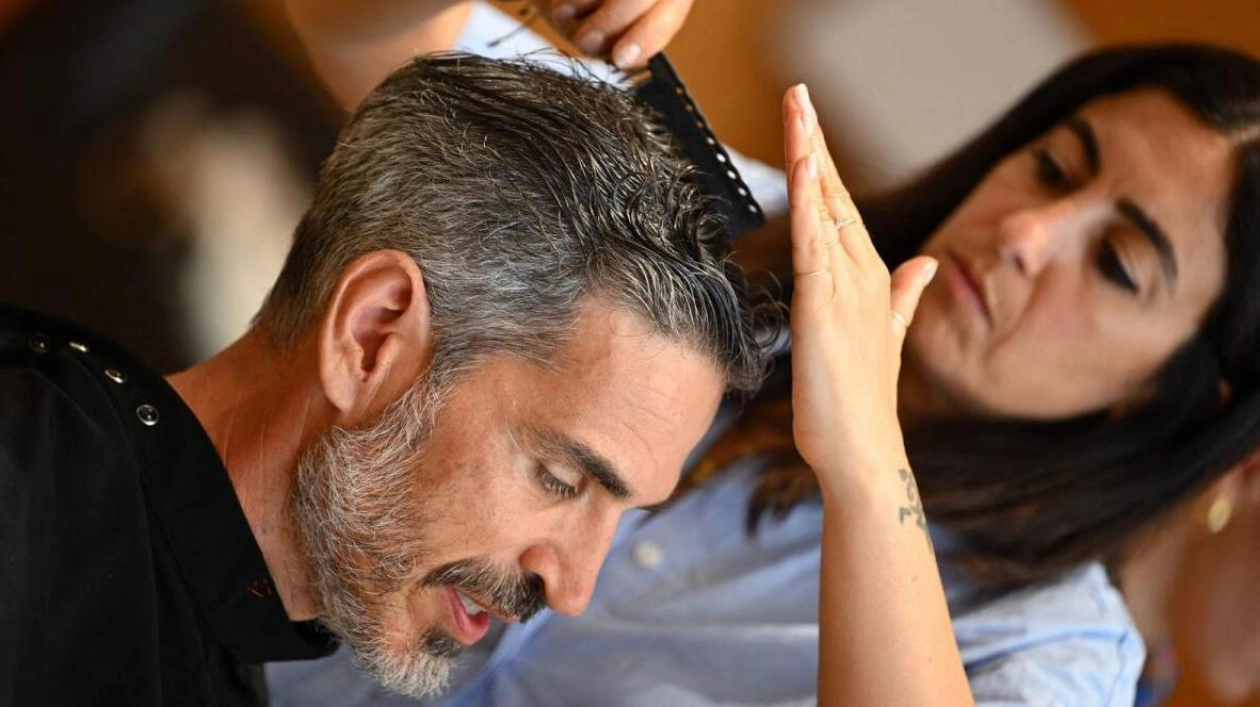Healthcare experts in the UAE have expressed concerns about the widespread issue of hair loss affecting a large number of residents. According to medical professionals, experiencing a daily hair loss of over 75 strands could be an early indicator of hair loss and potential health problems.
Dr. C Vijay Krishna, a specialist at the Centre for Dermatology and Cosmetology, Thumbay University Hospital, clarified that it is considered normal to shed between 50 to 75 strands of hair on a daily basis. However, surpassing the threshold of 75 strands may signal the onset of hair loss and indicate an underlying issue. Dr. Krishna highlighted that increased hair loss is often noticeable during activities such as combing or showering.
Dr. Iman Salah Youssef El-Habyan, a dermatology specialist at Zulekha Hospital Dubai, stated that approximately 66% of men in the UAE experience hair loss, with a concerning trend of onset occurring in individuals under 30 years of age. For women, hair loss issues typically begin during puberty and intensify over time.
Dr. Iman further explained that the natural cycle of hair growth, rest, and shedding can be disrupted, leading to noticeable thinning and bald spots, especially when the shedding phase accelerates.
The prevalence of hair loss varies across different age groups in the UAE. Doctors have identified various causes, mentioning that common factors contributing to hair loss in children include specific infections, vitamin deficiencies, and autoimmune conditions. On the other hand, adults often attribute hair loss to factors such as stress, genetics (androgenic alopecia), internal medical conditions like thyroid disorders and diabetes, lifestyle choices, and recent illnesses.
Dr. Krishna emphasized a significant increase in the number of patients seeking treatment for hair fall concerns, with over 100 patients per month, encompassing both men and women presenting with various hair-related issues.
Dr. Iman highlighted that social and psychological concerns account for 82% of the patients in her clinic. Additionally, she mentioned that there are numerous other factors impacting individuals and contributing to hair loss.
Regarding treatment options, healthcare professionals indicated that the approach largely depends on identifying the underlying cause. Nutritional deficiencies can be addressed through dietary changes or supplements to correct issues such as iron, vitamin D, and biotin deficiencies. For genetic hair loss, treatments such as minoxidil, finasteride, stem cell therapy, and hair transplants are recommended.
Furthermore, alternative methods to mitigate hair loss include stress reduction through activities such as mild exercise and yoga, known to improve overall well-being and decrease stress levels, potentially aiding in controlling hair loss.






